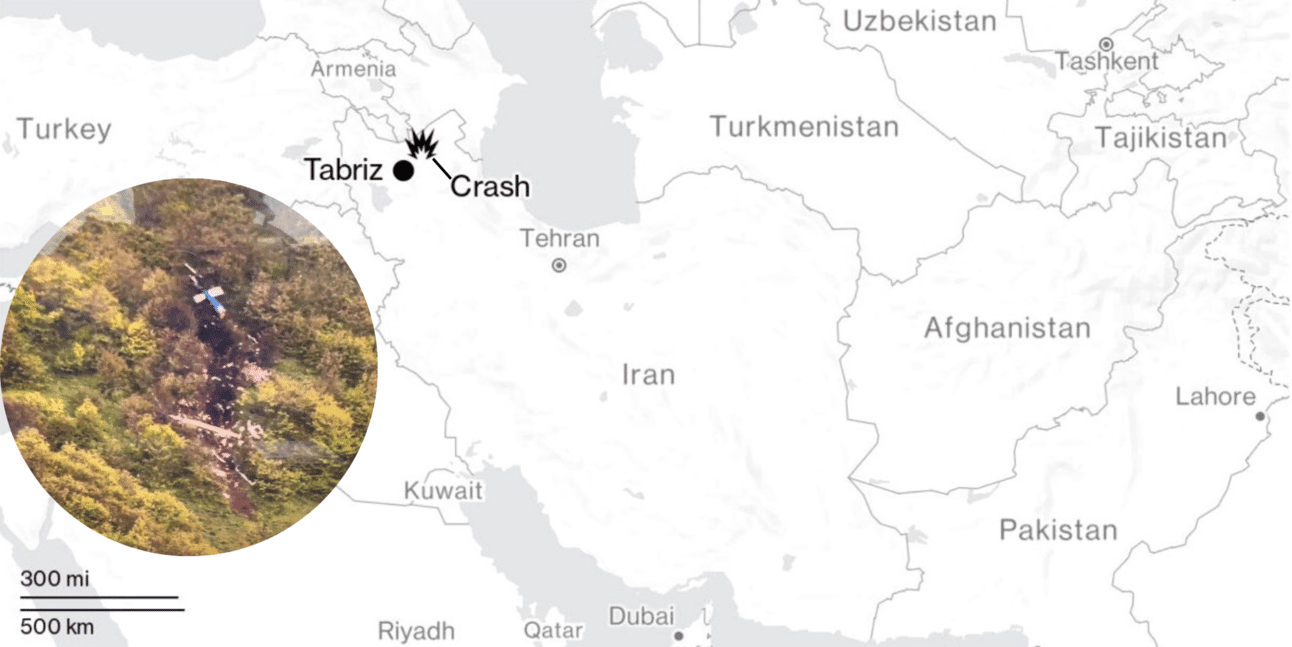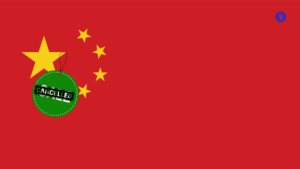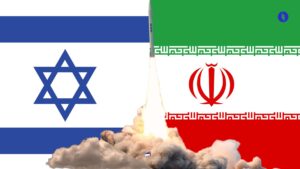Iran’s president died in a helicopter crash yesterday (Sunday) afternoon, opening up an internal power struggle at a tumultuous time for the country.
Embrahim Raisi, 63, had just been with the president of neighbouring Azerbaijan, cutting the ribbon at a dam along their border. It was part of their broader effort to calm tensions (Iran’s arch-rival Israel has cultivated close ties with the Azeris).
The president’s chopper appears to have then crashed during the return journey, killing ~nine passengers including Iran’s foreign minister and a regional governor.
Stay on top of your world from inside your inbox.
Subscribe for free today and receive way much more insights.
Trusted by 134,000+ subscribers
No spam. No noise. Unsubscribe any time.
What caused the crash?
Ordinarily, the cause would be (and probably still is) obvious: the president was flying in a 45-year-old helicopter through mountains and heavy fog. Sanctions mean Iran hasn’t replaced or fully maintained much of its fleet for decades.
But these aren’t ordinary times, Iran is no ordinary place, and Raisi is no ordinary president.
The times: The decades-long shadow war between Iran and Israel has recently exploded into plain view, and Iran’s long-time foes (the Saudis, the US, and Israel) continue to explore a pact to counter Iran.
The place: Iran’s economy is groaning under Western sanctions, ISIS has carried out deadly terrorist attacks there, and unrest again rocked the country in 2022-23, with a subsequent crackdown killing many hundreds of protestors (at least).
The president: Much of the blame for all this lands on Raisi, whether from an angry population or fellow hardliners convinced he’s inept. He ✌️won✌️ the 2021 elections with record-low turnout, after the Supreme Leader barred his rivals.
That same top ruler (Ayatollah Khamenei) also parachuted Raisi into his last job as head of Iran’s judiciary in 2019. His meteoric rise hasn’t been because Raisi is brilliant, but because he’s loyal: he was one of four members of Iran’s infamous ‘death commission’ that executed thousands of political prisoners in 1988.
And that all partly explains some of the reported local reactions to date, ranging from hardliners in prayer, to fireworks in the skies, to jokes circulating online.
It’s also partly why some state outlets still refer to Raisi’s death as an “incident” rather than an “accident”, leaving it open for Tehran to blame someone – presumably Israel or the US, though Iranians know Raisi had plenty of enemies.
So now what?
In a regime like Iran’s, there will be power struggles. The first is to replace Raisi as president – the constitution requires an election within 50 days, with establishment figures like the current speaker (Ghalibaf) likely to have a go. It really depends on who the Supreme Leader allows to run.
And that takes us to the bigger struggle over who will replace Iran’s Supreme Leader: he’s 85 and is rumoured to (again) have cancer. Iran has only ever replaced its Supreme Leader once in 1989, and it didn’t go smoothly.
So, there are no certainties, but two names have been circulating: one was Raisi.
The other is actually one of the Supreme Leader’s sons: the 54-year-old Mojtaba Khamenei, who’s a mid-ranking cleric with hardly any public profile, working mostly as an aide to his father.
The son’s ascension would leave Iran looking quite a bit like a monarchy, which is exactly what the Islamic Revolution toppled in the first place. And that’d leave the regime with even less popular legitimacy than it enjoys now.
So for now, this power struggle will play out among fellow hardliners. And unless something in the regime itself snaps, the end result is unlikely to be any imminent change in the way Iran approaches its neighbours or the world.
INTRIGUE’S TAKE
So will something snap? That’s impossible to know, but the regime’s many foes at home and abroad will see this power transition as an opportunity to shape events in their favour. In the meantime, here are a few observations:
- First, losing your own president, on your own soil, for most of a day, projects neither strength nor competence
- Second, later-stage autocracies are often tempted to double-down on control during times of crisis, further eroding their legitimacy and accelerating their decline, and
- Third, zooming out: as tensions spike everywhere, we’re seeing paranoid regimes appoint more leaders based on loyalty rather than competence, which ultimately increases the risk of miscalculation and escalation both at home and abroad.
Also worth noting:
- Raisi was under US sanctions, including for his role in Iran’s mass executions of 1988.
- He died with his foreign minister, Hossein Amirabdollahian, a career diplomat who spearheaded Iran’s reconciliation with the Saudis last year (brokered by China). A contender to replace him as FM is Baqeri Kani, his deputy who led last year’s prisoner deal with the US. Kani’s brother is married to one of the Supreme Leader’s daughters.
- Hamas, which has long benefited from Iran’s backing, has reportedly expressed “sadness and pain” over this “grave accident”. In Raisi’s final comments with his Azeri counterpart, he said “the Iranian and Azerbaijani nations have no doubts in their support for the Palestinian people and their hatred towards the Zionist regime [ie, Israel]”.
- The oil market has shrugged off the president’s death, suggesting an expectation that any power struggle won’t impact global supply.








